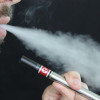Setting the Time on your Body Clock
Interview with
Kat - We're joined now by Professor Russell Foster. What do we mean by a body clock? What's actually going on here?
Russell - Each of us has an internal representation of a day which we use to fine-tune our physiology and behaviour to the varying demands of activity and rest. There's a very important structure right at the base of the brain called the suprachiasmatic nuclei (SCN). If this structure within the brain is destroyed as a result of a tumour or some other ghastly accident then these 24hr rhythms that we normally experience like sleep, wake and all the rest of it are lost. This clock is, in turn, set by exposure to the light-dark cycle. When we fly from let's say London to New York we eventually adapt to New York time because we experience the local light-dark cycle there. That talks to the SCN and that realigns our body clock to local time.
Chris - How do these cells actually work, Russell, to keep time?
Russell - The clock cells, you mean, or the light cells?
Chris - The clock cells.
Russell - Well, that's been an incredibly exciting area or research over the past ten years or so. At its core there's a feedback loop. A gene will produce a message. The message is then translated into a protein and then that protein will go into the nucleus and turn off its own gene. It's like a switch. The rate at which the gene is turned on or the rate at which the protein is produced, the rate at which the protein forms a complex of other proteins and then enters the nucleus are all critical in the developments of - or turning a switch into a 24 hour oscillation.
Chris - It's a bit like a genetic domino effect where one gene turns on, turns on another one, turns on itself and the whole thing goes round in a twenty four hour cycle.
Russell - Absolutely. We knew these SCN neurons had these genes. There's about 12-14 that have been described so far. What's emerged relatively recently is that almost every cell in the body has the capacity to have a circadian rhythm - a 24hr oscillation. It's not that the SCN is driving a rhythmicity in the rest of the body, it's acting rather more like a sort of conductor - producing a signal from which the rest of the body takes its cue and aligns its activity according to the master clock in the brain.
Chris - The significance of 24 hours, that's presumably because a day on Earth is about 24 hours.
Russell - That's right. Exactly.
Chris - How does the clock get set in the first place?
罗素——这是我们花了相当的东西a bit of time working on. It's turned out to be an extraordinary story. We started in the early nineties and we basically thought what visual cells in the eye (and they're the rods and the cones) are used to detect light and then set the clock to local time? We started working on mice with hereditary retinal disorders where these rods and cones had broken down. What was truly extraordinary is that although these mice were visually blind they still had the capacity to regulate their body clocks using the light-dark cycle. We know it's in the eye because if you covered the eye and you isolated the animal from the light-dark cycle this response had gone. Some ten years later from that original observation we now know that there's a third class of light sensor within the eye. It's a group of photosensitive ganglion cells which perceive light directly, send those messages into the brain and lock the SCN, the master clock onto the light-dark cycle.
Chris - What sort of light do they respond to? Any old light or does it have to be a certain frequency?
Russell - Well, they're most sensitive to light in the blue part of the spectrum: about 480nm. That's the sort of light that you get on a beautiful blue sky on a clear day.
Chris - Why would they choose that particular wavelength? Do we know?
Russell - That's a really interesting question. If one were designing a system to detect environmental brightness then you'd put it at 480 because that's where dominant wavelength of light is within the environment: particularly at twilight. Of course it's twilight, dawn and dusk where the clock really needs to sense light so it can lock onto local time.
Chris - Let's talk about people who, I think I have a bit of this, when it gets toward winter time I feel a bit miserable. It's become apparent that there is this thing, seasonal affective disorder, where people do almost sense the urge to hibernate at certain times of the year. This is presumably some kind of clock phenomenon?
罗素——它似乎被关联到一个时钟。A bit of background on SAD or seasonal affective disorder: as you were saying Chris it tends to be more pronounced in the winter months and around 2-3% of people in the UK are regularly diagnosed with SAD. If one goes farther north, let's say to Toronto, where the sun dips between the horizon on 20th November and then comes back again on the 20th January about 20% of the population are diagnosed with SAD. SAD is more than just the winter blues that you and I might experience. This is a really profoundly debilitating condition where the craving for carbohydrates goes up enormously. The need for sleep increases quite dramatically. Many people just simply don't have the energy to get out of bed other than to go to the fridge and consume huge amounts of carbohydrate.
Chris - Do we know any more about what's special about these people, why they get that?
Russell - We don't. There are certain genes and indeed some of the clock genes that are beginning to be linked to this particular condition. It's still early days yet. I think the really exciting thing for us is that we now know light has a real affect at alleviating some of the symptoms of SAD which is above placebo. As you know most drugs have a placebo effect, It can be as much as 20-30%. Light treatment, particularly morning light treatment is better than a placebo. It looks to be a real phenomenon that is being regulated by light.
Rollin Kent, Mexico - Do blind people have depression along the lines you've been talking because of light deprivation?
Russell - I think it's such an interesting idea because we've published a paper last year on an individual who has no rods and cones but can still regulate their body clock using these new receptors to the light-dark cycle. It's only with the discovery of these cells that we can ask question like that. The assumption then, has been - well, you're depressed because you can't see. We're starting some studies to look at depression in individuals who have those cells but don't have the capacity to see.
Colin Donnelly - How do full spectrum bulbs prevent seasonal affective disorder?
Russell - If the light is bright enough it actually doesn't matter too much which wavelength it is. When we say these receptors are most sensitive to blue light that's the wavelength if you were to lower the light levels it would then be blue that is effective. If you're using a full spectrum lamp that's bright enough it will be perfectly good.
Chris - So this is where people would perch themselves in front of a bright lamp in the morning?
Russell - That's right, yes.
Chris - And this works, does it?
Russell - Remarkably enough it works. Now we're beginning to understand the mechanisms behind it.
Nassar Husari - I once heard that in order to avoid jetlag when travelling you should shine a red light on the back of your knees. Is this true?
Russell - Let's kill this one dead! In '98 a group of researchers at Cornell University suggested that red light behind the knee would train the body clock. This got huge amounts of publicity. A lot of us thought it was nonsense at the time. It was published in Science, incidentally. Five studies around the world tried to replicate the findings and all completely failed. It looks as though there was some artefact in the experimental design of that original paper which was fundamentally flawed and they got it badly wrong. It did cause a huge amount of commotion. Let me assure you, it is nonsense.
Henry - Why are some people more productive in the morning? One thing that's come out of the body clock research is that there are certainly different species of people, almost.
Russell - We talked about those clock genes of which we think there are 12-14 of them. Tiny changes in those genes are now being associated with a morning preference - larks as distinct from an evening preference - those people we would describe as owls. You're absolutely right. There are some people, about 10% of the population that like to get up very early, We're talking about 5 in the morning but then they go to bed very early, sort of 7 o'clock in the evening.
Chris - And we've got genes that we can map onto those different behaviours?
Russell - In fact there's one extraordinary study called familial advance sleep-phase syndrome where it's been followed through five generations now. It's one tiny amino acid, a change in one of those proteins. One of those 14 proteins that make up the clock. It's an extraordinary study. We're starting to pick up more and more subtle changes in these genes with morning and evening preference. I should say that this morning and evening preference does shift with time. As one grows up from the age of ten through adolescence into the early 20s there is this tendency to want to go to bed later and later and later and get up later and later. That seems to be a real biological phenomenon. There's some very important consequences I think in terms of our education systems that we might want to discuss.
Kat - So maybe having classes later?
罗素,Uni的证据显示versity of Toronto. They tested pupils mid morning or mid afternoon and their scores went up by ten percent in the mid-afternoon. What was fascinating was that the older teachers' went down over the same time period.
Ben P - I commute to work and travel 40 minutes either way. I tend to sleep as the train motion makes me drowsy. In all this time I've only once slept through my stop. Most of the time I wake up just before my stop. Is this in some way linked to my body clock or am I just good at it?
Russell - What he's talking about and what I think many of us experience is that you wake up a few minutes before the alarm goes off. The mechanisms behind this have been much discussed. If we jump from our species and talk about honey bees. Honey bees will use their body clock almost like a daily events calendar. They will consult this internal clock to determine when they will visit a specific type of flower at different times of the day. For example they will visit one species at 12 noon and then another species 12 hours later. They're using their body clock to time specific daily events. It's thought that we may be able to do the same. It's not absolutely clear and there may be other mechanisms but the evidence is pretty good that we can act like little bees.









Comments
Add a comment